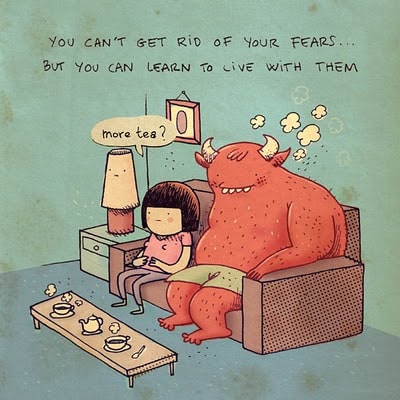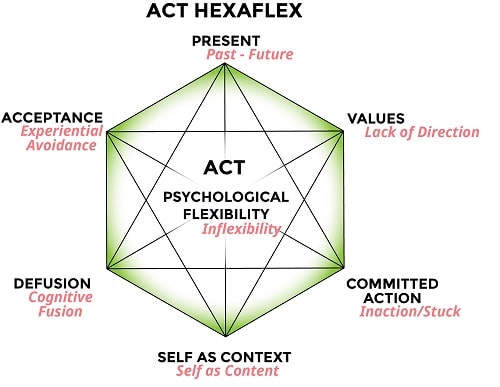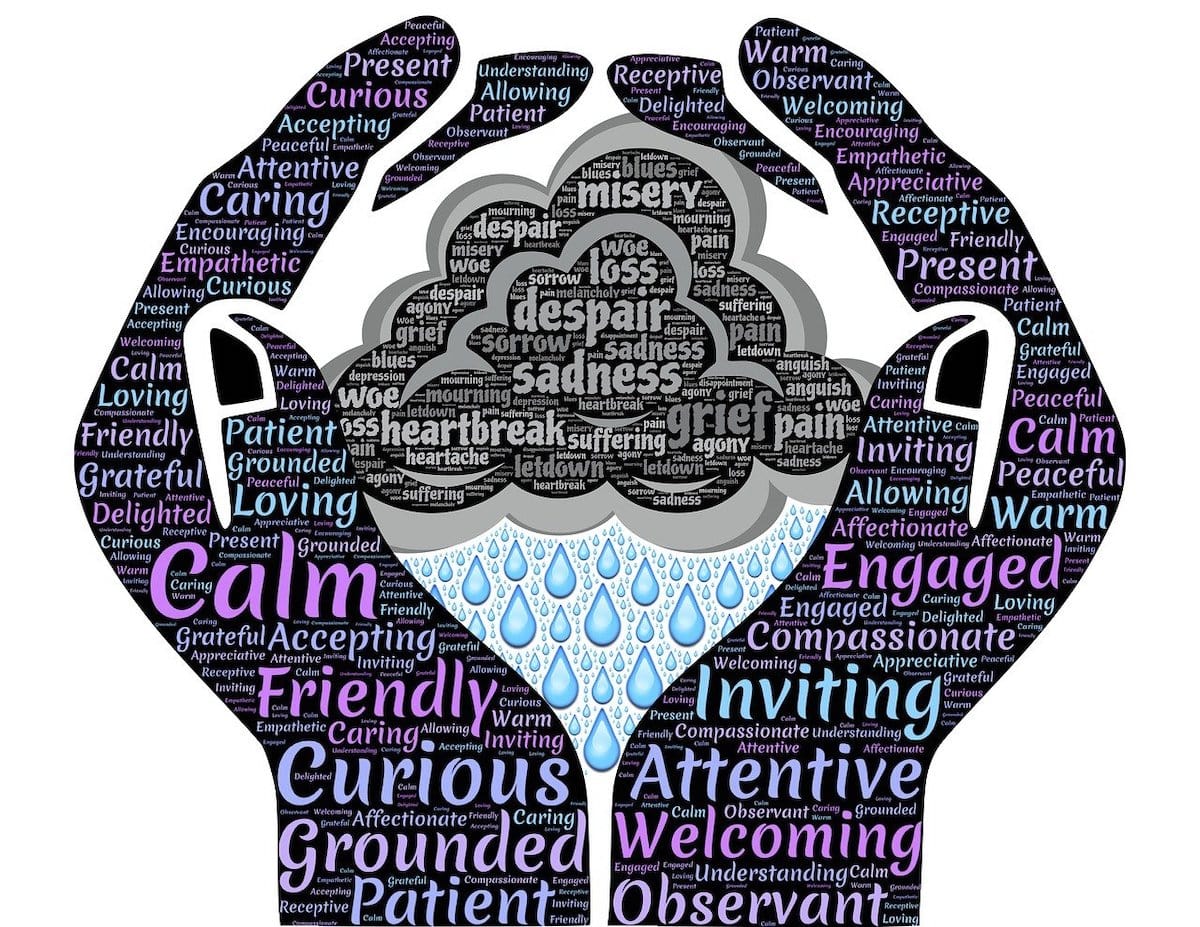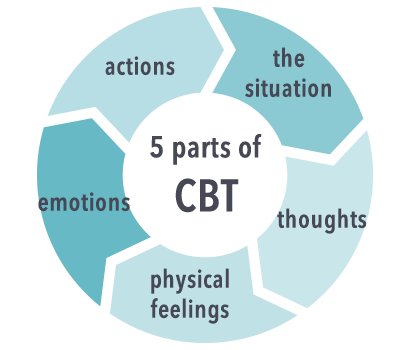From Wikipedia, the free encyclopedia
"Acceptance and commitment therapy(ACT, typically pronounced as the word "act") is a form of counseling and a branch of clinical behavior analysis. It is an empirically-based psychological intervention that uses acceptance and mindfulness strategies mixed in different ways with commitment and behavior-change strategies, to increase psychological flexibility. The approach was originally called comprehensive distancing. Steven C. Hayes developed Acceptance and Commitment Therapy in 1982 in order to create a mixed approach which integrates both cognitive and behavioral therapy.There are a variety of protocols for ACT, depending on the target behavior or setting."
ACT Concepts
The website www.actmindfully.com.au explains ACT in simple terms: it is a type of therapy that aims to help patients accept what is out of their control, and commit instead to actions that enrichen their lives (Harris, 2013).
According to the Association for Contextual Behavioral Science (ACBS), ACT is:
“a unique empirically based psychological intervention that uses acceptance and mindfulness strategies, together with commitment and behavior change strategies, to increase psychological flexibility.”
The ACBS views ACT as a therapy based on the concept that suffering is a natural and inevitable condition for humans. We have an instinct to control our experiences, but this instinct does not always serve us.
The founder of ACT has also offered a definition of ACT in terms familiar to the psychology field:
“a psychological intervention based on modern behavioral psychology, including Relational Frame Theory, that applies mindfulness and acceptance processes, and commitment and behavior change processes, to the creation of psychological flexibility” (Hayes, “The Six Core Processes of ACT”).
To put it in less clinical terms, Dr. Russell Harris (2011) has defined ACT as“a mindfulness-based behavioral therapy that challenges the ground rules of most Western psychology.” Its unique goal is to help patients create a rich and meaningful life and develop mindfulness skills alongside the existence of pain and suffering.

Core Processes
Six core processes of ACT guide patients through therapy and provide a framework for developing psychological flexibility (Harris, 2011). These six core processes of ACT include the following:
- Acceptance;
- Cognitive Defusion;
- Being Present;
- Self as Context;
- Values;
- Committed Action.
Acceptance is an alternative to our instinct to avoid thinking about negative—or potentially negative—experiences. It is the active choice to allow unpleasant experiences to exist, without trying to deny or change them.

Acceptance is not a goal of ACT, but a method of encouraging action that will lead to positive results.
Cognitive Defusion refers to the techniques intended to change how an individual reacts to their thoughts and feelings. Acceptance and Commitment Therapy does not intend to limit our exposure to negative experiences, but rather to face them and come out the other side with a decreased fixation on these experiences.
Being Present can be understood as the practice of being aware of the present moment, without judgment the experience. In other words, it involves experiencing what is happening without trying to predict or change the experience.
Self as Context is the idea that an individual is not simply the sum of their experiences, thoughts, or emotions. The “self as context” process offers the alternative concept that there is a self outside of the current experience.
We are not only what happens to us.We are the ones experiencing what happens to us.
Values in this context are the qualities we choose to work towards in any given moment. We all hold values, consciously or unconsciously, that direct our steps. In ACT, we use tools that help us live our lives in accordance with the values that we hold dear.
Finally, ACT aims to help patients commit to actions that will assist in their long-term goals and live a life consistent with their values. Positive behavior changes cannot occur without awareness of how a given behavior affects us.
ACT is not all that different from other behavioral-based therapies; it just emphasizes acceptance instead of avoidance, and in that way, differs from many other forms of therapy. This departure from most mainstream treatment can be traced back to the background of ACT’s founder, Stephen C. Hayes.
How ACT Works
The theory behind ACT is that it is not only ineffective, but often counterproductive, to try to control painful emotions or psychological experiences, because suppression of these feelings ultimately leads to more distress. ACT adopts the view that there are valid alternatives to trying to change the way you think, and these include mindful behavior, attention to personal values, and commitment to action. By taking steps to change their behavior while, at the same time, learning to accept their psychological experiences, clients can eventually change their attitude and emotional state.
What to Expect
Working with a therapist, you will learn to listen to your own self-talk, or the way you talk to yourself specifically about traumatic events, problematic relationships, physical limitations, or other issues. You can then decide if an issue requires immediate action and change or if it can—or must—be accepted for what it is while you learn to make behavioral changes that can affect the situation. You may look at what hasn’t worked for you in the past, so that the therapist can help you stop repeating thought patterns and behaviors that are causing you more problems in the long run. Once you have faced and accepted your current issues, you make a commitment to stop fighting your past and your emotions and, instead, start practicing more confident and optimistic behavior, based on your personal values and goals.
What to Look for in an Acceptance and Commitment Therapist
Look for a licensed, experienced therapist, social worker, professional counselor or other mental-health professional with additional training in ACT. There is no special certification for ACT practitioners. Skills are acquired through peer counseling, workshops, and other training programs. In addition to these credentials, it is important to find a therapist with whom you feel comfortable working.


